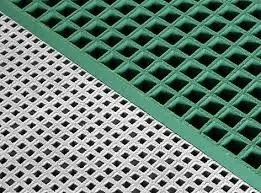
-
 Afrikaans
Afrikaans -
 Albanian
Albanian -
 Amharic
Amharic -
 Arabic
Arabic -
 Armenian
Armenian -
 Azerbaijani
Azerbaijani -
 Basque
Basque -
 Belarusian
Belarusian -
 Bengali
Bengali -
 Bosnian
Bosnian -
 Bulgarian
Bulgarian -
 Catalan
Catalan -
 Cebuano
Cebuano -
 China
China -
 China (Taiwan)
China (Taiwan) -
 Corsican
Corsican -
 Croatian
Croatian -
 Czech
Czech -
 Danish
Danish -
 Dutch
Dutch -
 English
English -
 Esperanto
Esperanto -
 Estonian
Estonian -
 Finnish
Finnish -
 French
French -
 Frisian
Frisian -
 Galician
Galician -
 Georgian
Georgian -
 German
German -
 Greek
Greek -
 Gujarati
Gujarati -
 Haitian Creole
Haitian Creole -
 hausa
hausa -
 hawaiian
hawaiian -
 Hebrew
Hebrew -
 Hindi
Hindi -
 Miao
Miao -
 Hungarian
Hungarian -
 Icelandic
Icelandic -
 igbo
igbo -
 Indonesian
Indonesian -
 irish
irish -
 Italian
Italian -
 Japanese
Japanese -
 Javanese
Javanese -
 Kannada
Kannada -
 kazakh
kazakh -
 Khmer
Khmer -
 Rwandese
Rwandese -
 Korean
Korean -
 Kurdish
Kurdish -
 Kyrgyz
Kyrgyz -
 Lao
Lao -
 Latin
Latin -
 Latvian
Latvian -
 Lithuanian
Lithuanian -
 Luxembourgish
Luxembourgish -
 Macedonian
Macedonian -
 Malgashi
Malgashi -
 Malay
Malay -
 Malayalam
Malayalam -
 Maltese
Maltese -
 Maori
Maori -
 Marathi
Marathi -
 Mongolian
Mongolian -
 Myanmar
Myanmar -
 Nepali
Nepali -
 Norwegian
Norwegian -
 Norwegian
Norwegian -
 Occitan
Occitan -
 Pashto
Pashto -
 Persian
Persian -
 Polish
Polish -
 Portuguese
Portuguese -
 Punjabi
Punjabi -
 Romanian
Romanian -
 Russian
Russian -
 Samoan
Samoan -
 Scottish Gaelic
Scottish Gaelic -
 Serbian
Serbian -
 Sesotho
Sesotho -
 Shona
Shona -
 Sindhi
Sindhi -
 Sinhala
Sinhala -
 Slovak
Slovak -
 Slovenian
Slovenian -
 Somali
Somali -
 Spanish
Spanish -
 Sundanese
Sundanese -
 Swahili
Swahili -
 Swedish
Swedish -
 Tagalog
Tagalog -
 Tajik
Tajik -
 Tamil
Tamil -
 Tatar
Tatar -
 Telugu
Telugu -
 Thai
Thai -
 Turkish
Turkish -
 Turkmen
Turkmen -
 Ukrainian
Ukrainian -
 Urdu
Urdu -
 Uighur
Uighur -
 Uzbek
Uzbek -
 Vietnamese
Vietnamese -
 Welsh
Welsh -
 Bantu
Bantu -
 Yiddish
Yiddish -
 Yoruba
Yoruba -
 Zulu
Zulu
Innovative Solutions for Fiberglass Chemical Storage Tanks and Their Benefits
The Importance of Fiberglass Chemical Tanks in Industry
In the modern industrial landscape, the safe storage and transportation of chemicals have become paramount. This need has birthed innovative solutions, one of the most notable being fiberglass chemical tanks. These tanks have quickly gained popularity due to their superior properties that cater specifically to the demands of various industries.
What are Fiberglass Chemical Tanks?
Fiberglass chemical tanks, also known as FRP (Fiberglass Reinforced Plastic) tanks, are storage vessels made from a composite material that combines glass fibers with resin. This unique composition gives them a variety of advantages over traditional materials like steel or concrete. The lightweight nature of fiberglass makes these tanks easier to transport and install, while their high resistance to corrosion and chemical degradation sets them apart in environments where harsh substances are stored.
Advantages of Fiberglass Chemical Tanks
1. Corrosion Resistance One of the most compelling reasons for using fiberglass is its remarkable resistance to corrosion. Unlike metal tanks that can rust or corrode when exposed to certain chemicals, fiberglass tanks withstand a wide range of corrosive substances. This durability helps in prolonging the life of the tank and minimizes replacement costs over time.
2. Lightweight and Easy to Handle Fiberglass tanks are significantly lighter than their metal counterparts, which allows for easier transport and handling. This attribute is particularly beneficial for industries where installation in remote or hard-to-reach locations is necessary. Less weight also means lower shipping costs and easier installation.
fiberglass chemical tank

3. Versatile Design Fiberglass chemical tanks can be molded into various shapes and sizes to accommodate different storage needs. Whether it’s for small-scale operations or large chemical plants, these tanks can be customized to meet specific requirements. This versatility extends to their design, allowing for seamless integration into existing systems and configurations.
4. Cost-Effective Though the initial investment for fiberglass tanks may be higher than that of some traditional options, the long-term savings make them a cost-effective choice. Their resistance to corrosion significantly reduces maintenance costs, and their longevity ensures that companies do not incur frequent replacement expenses.
5. Safety Features Many fiberglass tanks are designed with safety in mind. Their non-reactive nature means they are less likely to compromise when storing hazardous chemicals, thus minimizing the risk of leaks and spills which can pose serious threats to both safety and the environment.
Applications of Fiberglass Chemical Tanks
The applications of fiberglass chemical tanks are vast. They are widely used in industries such as water treatment, chemical processing, agriculture, and food and beverage production. In the water treatment sector, these tanks can store chemicals used for purification processes without fear of contamination. In agriculture, they play a crucial role in storing fertilizers and pesticides safely. The food and beverage industry utilizes fiberglass tanks for their ability to maintain purity and prevent chemical leaching.
Conclusion
In conclusion, fiberglass chemical tanks represent a significant advancement in the field of chemical storage. Their unique properties, including corrosion resistance, lightweight design, versatility, cost-effectiveness, and safety, make them a preferred choice for a diverse range of industries. As environmental regulations become increasingly stringent and the need for safer chemical handling continues to grow, the adoption of fiberglass technology will likely expand. The future of chemical storage is undoubtedly leaning towards innovative solutions like fiberglass tanks, reinforcing the importance of safe and efficient industrial practices.









